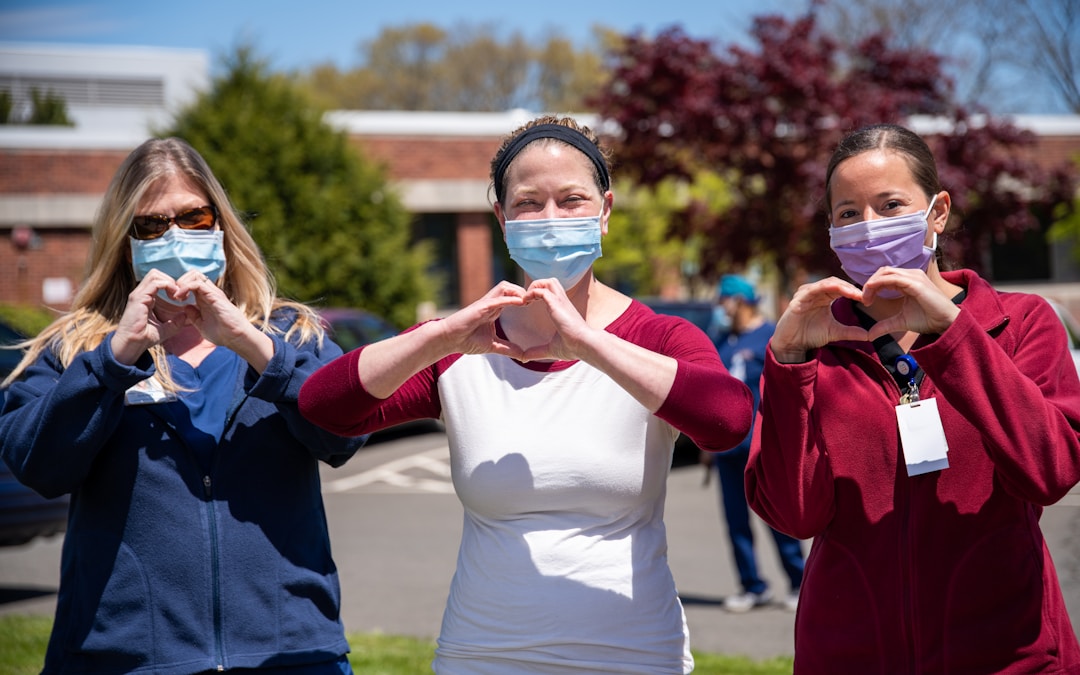Travel healthcare jobs are becoming increasingly popular due to a range of factors. The growing demand for healthcare professionals across the country is driving the need for temporary staffing solutions. Travel healthcare jobs offer a flexible and convenient option for healthcare professionals to fill these gaps in areas with shortages and high demand. This comprehensive guide takes a structured approach to the process of finding and securing a travel healthcare job. In this article, we delve into the essential aspects of securing a prosperous career in travel healthcare.
Understanding Travel Healthcare

A deep understanding of the field you are venturing into is as critical as the career itself. Travel healthcare, a relatively novel field, has seen a dramatic surge in popularity for its flexible approach to work and lifestyle. It is an exciting employment route for many healthcare professionals seeking a blend of travel and healthcare service. This particular healthcare sector offers a two-fold approach – offering specialized care services on the move while exploring adventurous paths you have always desired.
By functioning as a mobile healthcare provider, you get the opportunity to work in varied healthcare facilities across the nation or even internationally. It provides a unique balance of professional growth, personal development, and the thrilling aspects of travel. The exposure derived from various settings, cultures, procedures, and patient care styles is immensely valuable in shaping a robust healthcare professional.
Not only does it equip one with a diverse skill set but also provides an avenue for consistent learning and growth. When you’re ready to start your job search, you should check out Fusion Marketplace. They have offerings for many different specialties, including Fusion Marketplace travel SLP. Speech-language pathology, abbreviated as SLP, is a part of the travel healthcare sector, aimed at fulfilling the need for speech-language pathologists who are ready to step out of their comfort zone and travel. Fusion makes it easy to find open assignments and build your career in the travel healthcare industry.
Requirement Check
Before embarking on your journey, you need to understand the prerequisites. A minimum of a bachelor’s degree related to healthcare is imperative. In some specializations, some jobs may require a master’s or doctoral degree. Healthcare professionals need to be licensed to practice in their respective fields, and requirements may vary state-wise. Furthermore, most travel healthcare positions require prior work experience, usually a minimum of one or two years in the relevant field.
Being multilingual can be another significant advantage in this field, as you will work in different regions with diverse populations. Physical stamina is also necessary given the demands of the job and the travel involved. You should also be prepared to adapt to changing environments and have excellent interpersonal and communication skills, as travel healthcare professionals often work with new teams and care for diverse patient populations.
Be prepared for the commitment. Travel healthcare jobs usually last for about 13 weeks, though they can be shorter or longer depending on the assignment. This means being away from home for extended periods, sometimes in areas that may be rural or remote. It can also mean variety in job responsibilities, as travel healthcare professionals often fill in gaps in care and may need to adjust quickly to new settings and protocols.
Research Diligently

Arming yourself with the right information should be a priority. Research both the agencies and the hospitals you would potentially be working for. With various recruitment agencies offering travel healthcare services, understanding their operating processes, available support services, financial policies, and reputation are paramount. It is recommended to read the reviews, understand the pay structure, and ask about job support, housing, and any other facilities before signing a contract.
Equally important is understanding the working environment. Enquire about the hospital culture, work processes, senior leadership, and employee satisfaction rates. You have to understand the patient population, medical challenges on-site, work schedules, on-call duty requirements, and any other operational factors. Remember, the more research you do, the better prepared you will be for what lies ahead.
Networking is another useful method to gather first-hand experiences and facts. Connecting with healthcare professionals currently employed as travel healthcare staff or those who were involved in this field can provide valuable inside information. Social media platforms, forums, and professional networking sites also offer excellent platforms for gathering information.
Secure the Right Certifications
For every healthcare professional, be they nurses or therapists, certain certifications and licenses are non-negotiable. Professionals such as Registered Nurses (RNs) must hold a valid RN license, while a Doctor of Physical Therapy (DPT) must hold a suitable certification. They must also adhere to the licensing and examining bodies’ continuous professional development requirements. Therefore, before plunging into the travel healthcare world, ensuring that all your licenses and certifications are current and valid is crucial.
Apart from the primary professional licenses, meeting state-specific licensure requirements is another vital step. Each state may have different licensing criteria and processes. Be prepared to apply for licensure in every state you intend to serve. The process might take some time; hence, it’s wise to start the process well before your planned travel time.
Beyond the required professional licenses and state permits, some specializations might necessitate additional certifications. For example, Advanced Cardiac Life Support (ACLS), Pediatric Advanced Life Support (PALS), or certification in specialty areas like oncology or geriatrics could be advantageous. You can often earn more money if you have advanced certifications or work in an in-demand specialty, even more than their stationary counterparts.
Securing Job Assistance

A travel healthcare job can entail a multitude of responsibilities and new experiences. However, one mustn’t overlook the fact that you will frequently be in unfamiliar territory. While this change of scenery can be invigorating, it can also present challenges. You must secure job assistance to make the transition smoother. This could mean seeking assistance from the staffing agency or the employing facility to find housing or understand local transportation. It could also mean ensuring that you have proper support in your new workplace, including resources for training and adapting to new job responsibilities.
Travel healthcare professionals must also manage every aspect of their lives remotely. Arranging for temporary housing, securing reliable transportation, managing home-front issues from a distance, and ensuring a constant avenue for the continuation of education are a few key areas. Hence, it’s fundamental to choose a staffing company that adds value and offers comprehensive job assistance services.
Navigating Your Next Assignment

Post-reflection paves the way to navigate your next assignment. The key lies in being reflective about previous engagements and proactive about seeking new ones. Armed with your takeaways from previous jobs, you have a clearer vision of what you are looking for. Understanding which areas attracted your intellectual pursuits, which environments cultivated personal growth, and which locations gave you a memorable journey will provide a clear direction for your next assignment.
Commence with re-checking the necessities – updating your licenses, revisiting the certifications needed based on the state or specialization, and updating any other credential or document that needs attention. Speak to your recruiter about your following job preferences and expectations. Additionally, also discuss your housing and commute needs, so both parties have ample time to work on it.
The chronological sequence brings you back to the research phase. Revisit your list of potential staffing agencies and hospitals, update this list if needed, and start the pursuit of your next adventure. Remember, staying consistent with your goals and being flexible with the job dynamics are two aspects that go hand in hand in travel healthcare.
As this blog has demonstrated, securing a travel healthcare job demands diligent planning, adapting to change, and a constant desire to learn and grow. The journey is filled with a mix of professional challenges, adventurous trails, and lifelong memories. The quest might seem daunting, but every step towards this profession is a stride toward a fulfilling career and life. Follow our advice and you’ll be well on your way to a thriving career in travel healthcare.